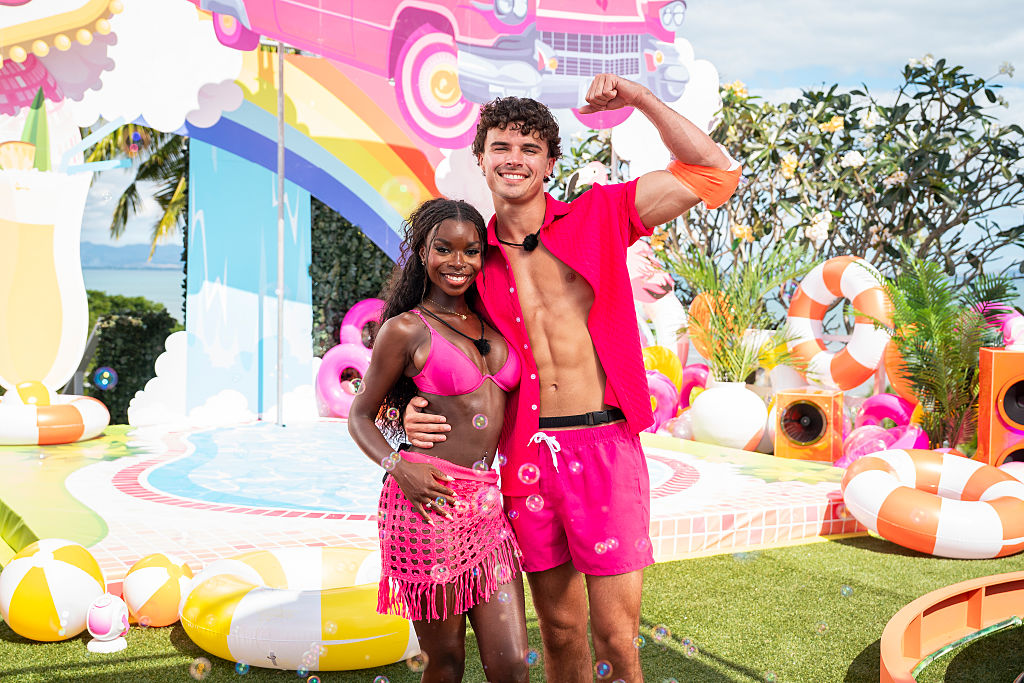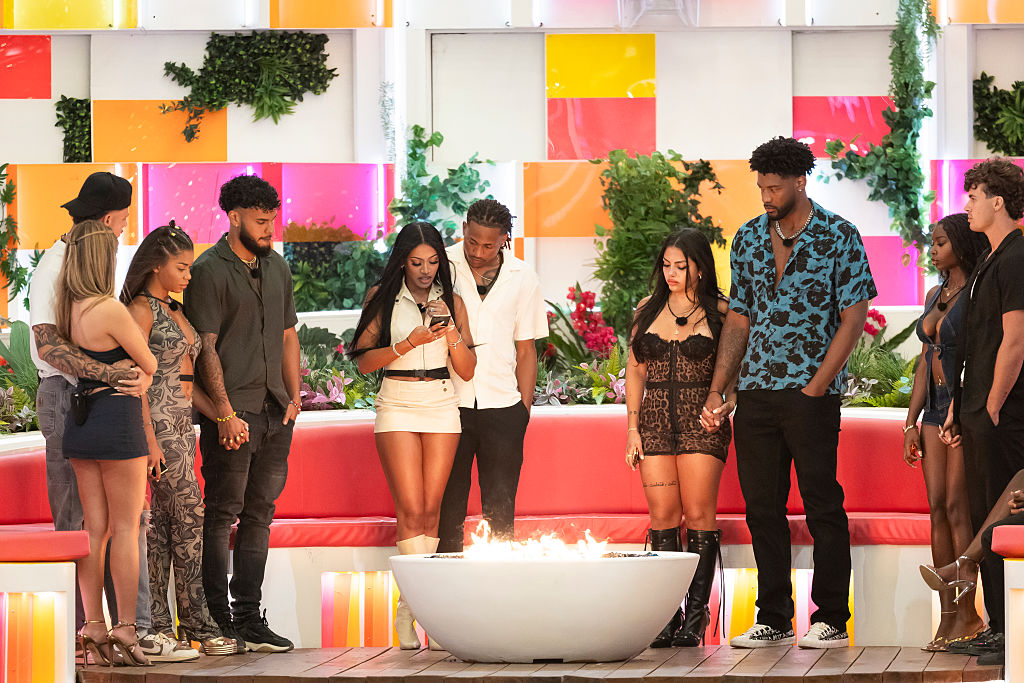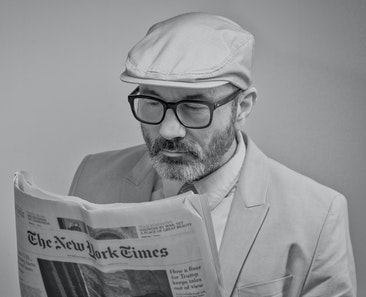‘Love Island USA’ Marks a New Era of Toxic Fandom

Unlike the majority of dating reality shows, which are recorded months in advance, Love Island USA airs in real time, providing a live inside look into not just the nation’s attitudes towards sexuality and dating, but who deserves to be on reality television.
While last season produced a cast of household favorites, this season has not been the case. In an attempt to curb negative fan responses, an anti-cyberbullying message was released ahead of the June 24 episode. “The keyword in Love Island is…Love. We love our fans. We love our Islanders. We don’t love cyberbullying, harassment, or hate.”
[time-brightcove not-tgx=”true”]Despite the ongoing backlash, season 7 is the most watched season of Love Island USA thus far, notching record-breaking streaming audiences and a massive increase in social media engagements. Plus, programming such as Love Island: Beyond The Villa, the first Love Island USA spinoff, reflects significant investment in the brand by Peacock.
Indeed, the streamer has invested heavily in ensuring that Americans watch the Islanders’ every move. But what happens when this magnifying lens begins to reflect negatively on the Islanders?
Around the world, numerous Love Island franchises have demonstrated a worrying trend: when Islanders leave the villa and their 15 minutes of fame are over, they often face online hatred and vitriol for life.
Vanna Einerson, who briefly appeared on the current season during Casa Amor, broke down in tears after she read comments from fans about her physical appearance. Amy Hart, a contestant on season 5 of Love Island in the U.K. testified in front of Parliament after she received death threats from viewers. Kendall Washington, a finalist on season 6 of Love Island USA, was subjected to homophobic remarks online, after explicit videos of him were released without his consent.

Despite ongoing efforts from the network to curb negative fan behavior, the harassment continues. Noah Sheline, who shares a daughter with Huda Mustafa, a Love Island USA season 7 contestant, was overwhelmed with online hate by fans. “Her going on that show to find love, or whatever you think it was she’s doing, remember she’s still human, she has a daughter, and a life,” he wrote on social media. He asked fans to think about how their words will impact Mustafa’s mental health, upon her return home from the reality series. Chelley Bissainthe’s account on Instagram turned off comments after an influx of death threats and hateful comments towards Bissainthe and her fellow Islanders.
Ariana Madix, the show’s host and former Vanderpump Rules star, recently spoke to NBC News about the mental health support afforded to the Islanders. Similar to Love Island‘s duty of care program procedures, the contestants will have access to mental health support, after the season ends. While the network can provide solutions to reduce the harm inflicted on Islanders, it is also on the fans to stop their continuous patterns of online harassment and cyberbullying.
And then, there are the instances of Yulissa Escobar, Austin Shepard, and Cierra Ortega, three season 7 Islanders who received backlash after fans surfaced hateful or insensitive comments they had made online.
Each case has been unique. Shortly after the season 7 premiere, videos resurfaced of Escobar using the n-word on a podcast. After the clips gained traction online, she was removed from the villa by producers. Shepard, in contrast, was voted off after weeks on the dating reality show. Fans then quickly called out hurtful content he had reposted on TikTok, including a video making light of police violence.
Ortega was sent home from the villa by producers towards the end of the season after an Instagram post of her using a racial slur against Asian people was made public. In an “accountability video,” Ortega apologized for her use of the slur. “What’s been extremely, extremely difficult is the way people are approaching my family and my loved ones,” she said. “They have had ICE called on them. My family does not feel safe in their own home. I have received death threats.”
Racially-charged instances such as these have made it difficult to distinguish between accountability, cancel culture, and toxic fandom.
To be sure, debates around contestants on competition shows is not a new phenomenon. Consider, for instance, the elimination of Jennifer Hudson on season 3 of American Idol or when MJ David was double-crossed by JT Tamburello and Trishelle Cannatella on season 2 of the Traitors. But, the latest season of Love Island USA has produced a series of startling new behaviors and patterns. Many have speculated on the sudden shift in fan behavior towards Islanders.
“Reality shows have been found to exacerbate body anxiety, increase physical aggression, and mess with our expectations for romantic relationships,” writes Judy Berman for TIME. If so, this is perhaps the worst time for Love Island USA to be on tv, since 78% of Americans are experiencing some level of anxiety. Housing costs, financial stability, inflation, and political division are contributing factors to this rise. Unlike last year, where Love Island USA existed as a safe space for people to unwind and decompress from an election year, contestants on this year’s season of Love Island USA have become scapegoats for America’s worries.
Nevertheless, the economic, social, and political realities of the everyday American are not justification for the continued mistreatment and harassment of Islanders on social media from viewers and fans.
With the season 7 finale of Love Island USA set to air on July 13., there is time for fans to stop this cycle of hate, before the Islanders regain access to their phones. The current Islanders are not aware of the online commentary about their physical appearance, criticism about their dating choices and behaviors in the villa, and campaigns for their elimination from the show. However, the moment they receive their phones, they will have to digest weeks upon weeks of hateful commentary and discord about themselves.
Like Madix said on a June 21 episode of Aftersun, the weekly talk show that recaps the latest week in the villa “We should be thanking each one of these islanders every single day for giving us themselves.”
For all of reality television’s pitfalls, there is joy in watching young 20-somethings fall in love. Serena Page and Kordell Beckham, Leah Kateb and Miguel Harichi, and JaNa Craig and Kenny Rodriguez of season 6 of Love Island USA are still dating. Hannah Wright and Marco Donatelli, the winners of season 5 of Love Island USA recently got engaged.
With the removal of Ortega from the villa, many fans are rallying behind Nicolas Vansteenberghe and Olandria Carthen, affectionately known as “Nicolandria,” to take home the prize. (Madix herself has admitted to being a Nicolandria stan.)
And another sign of genuine fan support is the outpouring of love towards Amaya Espinal, a Dominican American Islander who was chastised by male Islanders for her emotional candor and passionate responses, until fellow Islander Bryan Arenales defended her. Since then, the two have coupled up in the villa.
To be sure, love is alive and well on season 7 of Love Island USA—but only if the fans and viewers allow it.



